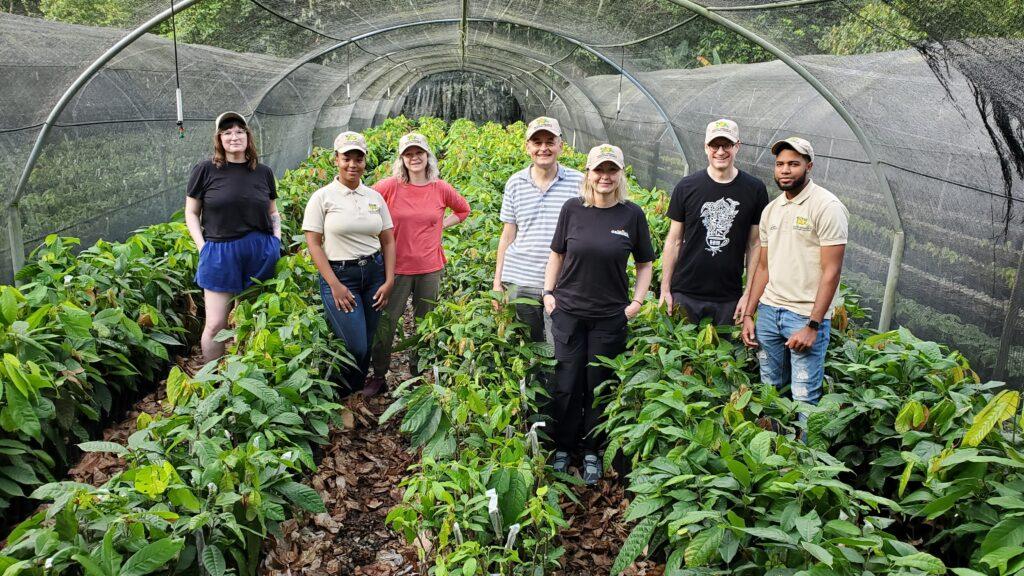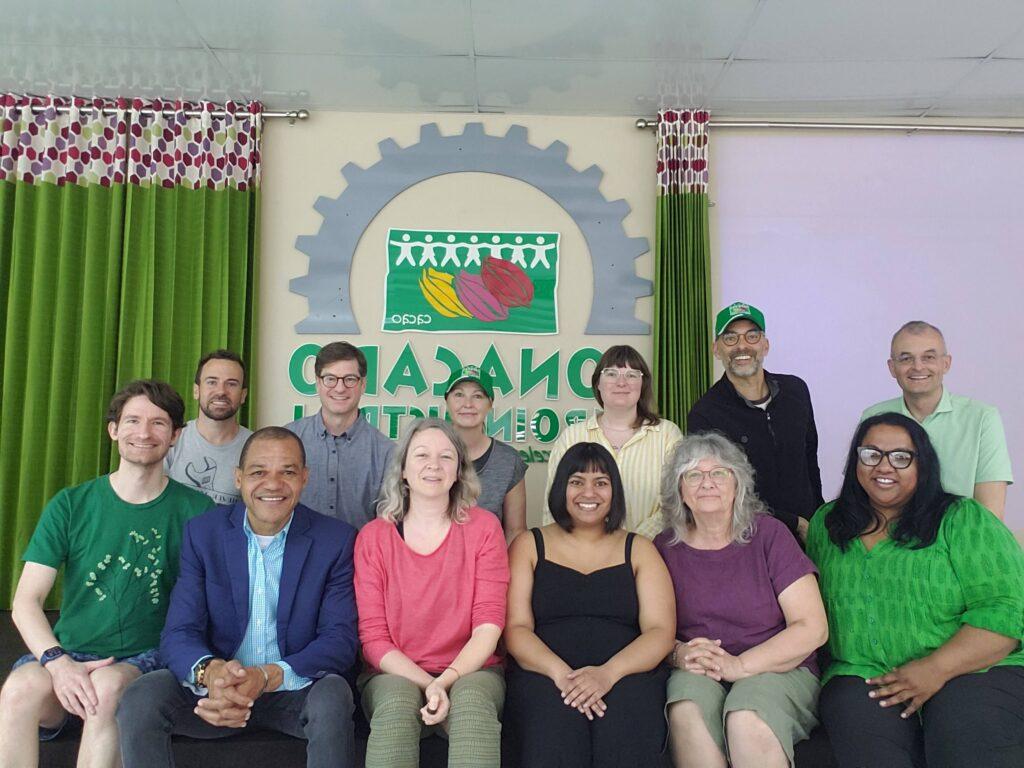Did you know it is Co-op week?
La Siembra Co-op, the makers of Camino, is structured as a worker cooperative. But what does “co-operative”, or “co-op”, mean anyway? And what difference should it make to consumers like you?
The International Co-operative Alliance defines a cooperative as “an autonomous association of individuals united voluntarily to meet their common economic, social and cultural needs and aspirations through a jointly-owned and democratically-controlled enterprise.”
More concretely, using our co-operative as an example, instead of being owned by a big global conglomerate, or by a handful of external shareholders, La Siembra is owned by its workers – us. We are individuals that believe in our co-op mission, share common values, as well as profits and losses and we vote on big decisions, here in Canada.
Cooperatives have always been a mechanism for individuals to come together to challenge exploitative market forces and build a future for themselves. They are not for profit-seeking types of companies. In fact, cooperatives are all committed to a set of 7 core principles. Among these principles, perhaps our favourite is the 6th of these principles, which says that cooperatives should support other cooperatives: cooperation among cooperatives.
We are part of a resilient network of cooperatives
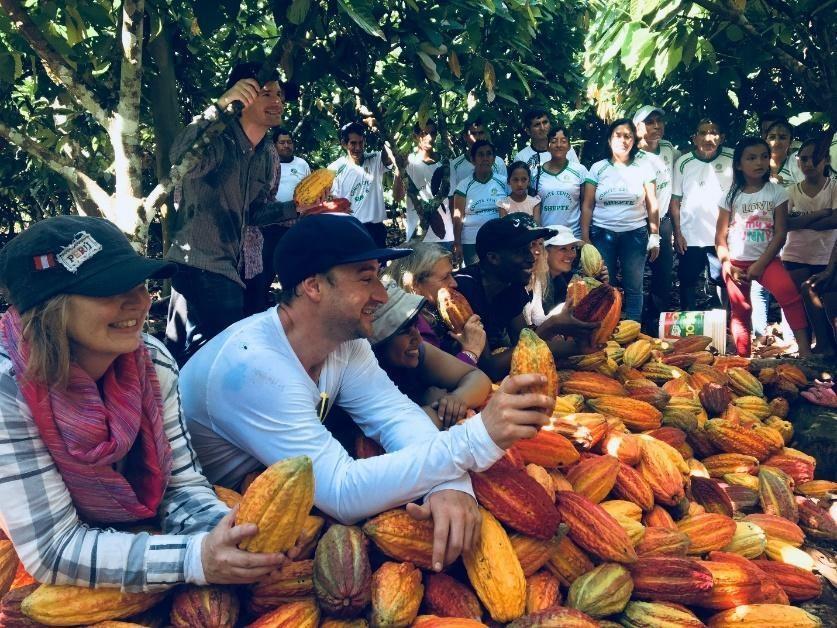 From our long-term relationship with our producer partners organized as producer co-operatives to our alliance with our sister co-op Equal Exchange, our financial partnerships with the Canadian Worker Cooperative Federation (CWCF), Caisse Populaire Desjardins Bank, and insurance services with The Cooperators, and to the retailers, like Kootenay Co-op, Karma Co-op and the Big carrots, that sell our products across the country, our history is rooted in strong relationships with co-operatives and social economy partners in Canada.
From our long-term relationship with our producer partners organized as producer co-operatives to our alliance with our sister co-op Equal Exchange, our financial partnerships with the Canadian Worker Cooperative Federation (CWCF), Caisse Populaire Desjardins Bank, and insurance services with The Cooperators, and to the retailers, like Kootenay Co-op, Karma Co-op and the Big carrots, that sell our products across the country, our history is rooted in strong relationships with co-operatives and social economy partners in Canada.
“When a company is owned and operated by the people who use its products and services and who benefit from what the company has to offer, it’s known as a cooperative. When co-ops work together, they create regional, national and international structures that help to improve the community and create a better world.” Antoine Lacasse, M.Sc Adm, Account Manager – Caisse d’économie solidaire Desjardins.
All the cocoa beans and sugar we used to make Camino’s chocolates and other products come from small-scale farmers who are members of cooperatives. Each producer in their co-op gets a vote and can run for a leadership position. It’s important to make sure that the fair trade products you buy come from producer co-ops vs large plantations where only the owners are most likely to benefit from this system.
Recalling a trip to the cocoa farms in the Amazon, Kootenay Coop’s Shannon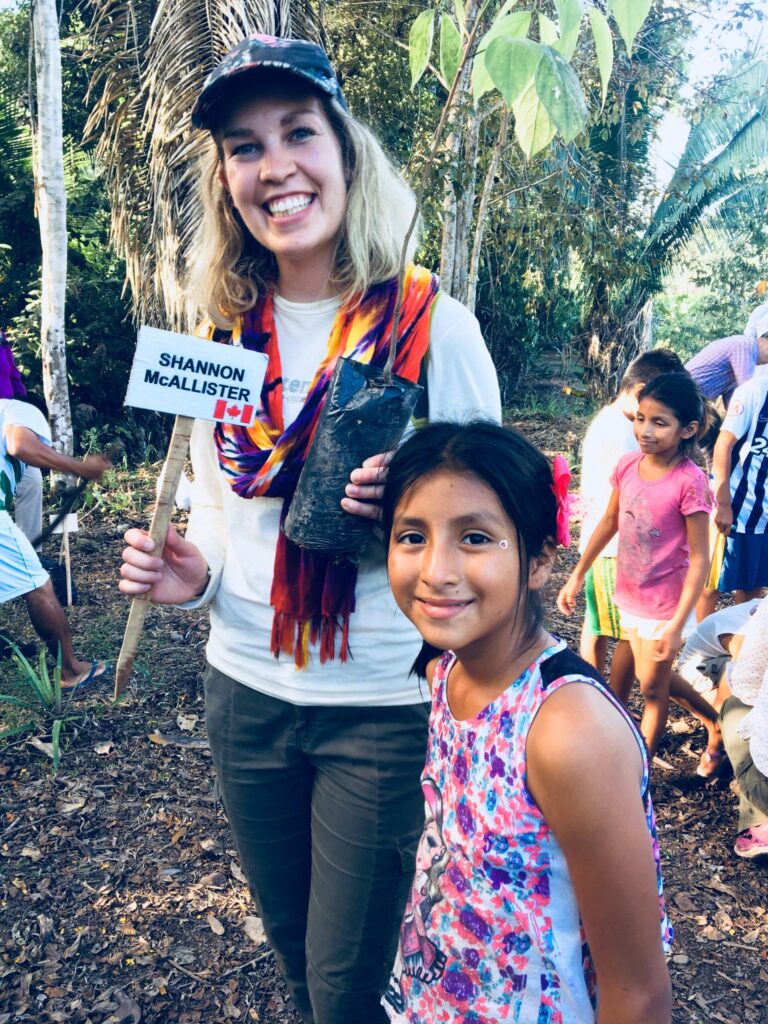 McAllister noted “I think the most surprising and humbling thing that I learned from living and working with cocoa farmers of Acopagro in Peru was seeing how tirelessly they worked for an intangible end result – a product they can’t afford to consume and don’t often get to even see. Many of the farmers got to taste a chocolate bar for the first time because you brought them some Camino bars to try! Our co-op has over 12,000 active member-owners, which is especially amazing for a city with a population of just over 10,000 people! We love that our co-op members can support co-op farmers by working with La Siembra.”
McAllister noted “I think the most surprising and humbling thing that I learned from living and working with cocoa farmers of Acopagro in Peru was seeing how tirelessly they worked for an intangible end result – a product they can’t afford to consume and don’t often get to even see. Many of the farmers got to taste a chocolate bar for the first time because you brought them some Camino bars to try! Our co-op has over 12,000 active member-owners, which is especially amazing for a city with a population of just over 10,000 people! We love that our co-op members can support co-op farmers by working with La Siembra.”
Co-operatives to democratize our food system
In the food industry, where increasing consolidation is the norm, being an independent and democratically run player is pretty rare. When you look at the grocery shelves, it may seem like there are lots of choices for shoppers. But in reality, all those brands are now owned by the same small handful of huge companies (see this chart by Oxfam International for specific examples). Many of the small brands were founded by people who cared about organic and fairly sourced food, just like we do. But the new owners have a different priority now – turning a profit.
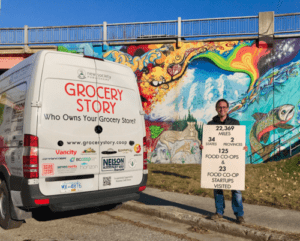 As Jon Steinman wrote in his 2019 publication Grocery Story, “Food has become ground-zero in our efforts to increase awareness of how our choices impact the world. Yet while we have begun to transform our communities and dinner plates, the most authoritative strand of the food web has received surprisingly little attention: the grocery store—the epicentre of our food-gathering ritual. American and Canadian food co-ops, transform the grocery store aisles into the emerging frontier in the local and good food movements.”
As Jon Steinman wrote in his 2019 publication Grocery Story, “Food has become ground-zero in our efforts to increase awareness of how our choices impact the world. Yet while we have begun to transform our communities and dinner plates, the most authoritative strand of the food web has received surprisingly little attention: the grocery store—the epicentre of our food-gathering ritual. American and Canadian food co-ops, transform the grocery store aisles into the emerging frontier in the local and good food movements.”
Together co-operatives are building a stronger movement while bringing back democracy, real choices, equitability and resilience into our food system.
“Over the past few months, we’ve loved how our relationship with Camino has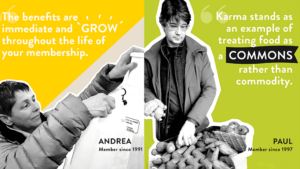 grown. Ordering bulk and grocery products directly from Camino allow us to not only support another co-op but also learn about the people behind the products! Our membership is so grateful for Camino’s transparency and sharing of knowledge about their products, farmers, and growers. We look forward to continuing this partnership for many years to come!” Eden Schwartz, Karma Co-op.
grown. Ordering bulk and grocery products directly from Camino allow us to not only support another co-op but also learn about the people behind the products! Our membership is so grateful for Camino’s transparency and sharing of knowledge about their products, farmers, and growers. We look forward to continuing this partnership for many years to come!” Eden Schwartz, Karma Co-op.
Long-term partnerships among cooperatives allow lasting change for consumers who shop at their local co-ops and for farmers and food producers who get treated fairly by those same stores. In some cases, the cooperatives create fundamental societal change in just one generation.
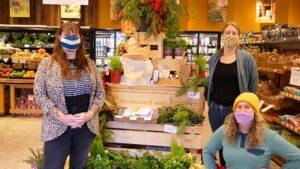 “The Mustard Seed’s Annual Seedling Sale is something our community looks forward to every year for the last 7 years. It means winter is over and we made it to spring! More importantly, the event allows our farmers to connect directly with our members and the annual event is the best of all our collective abilities.” Laura Carpenter, Mustard Seed Co-op.
“The Mustard Seed’s Annual Seedling Sale is something our community looks forward to every year for the last 7 years. It means winter is over and we made it to spring! More importantly, the event allows our farmers to connect directly with our members and the annual event is the best of all our collective abilities.” Laura Carpenter, Mustard Seed Co-op.
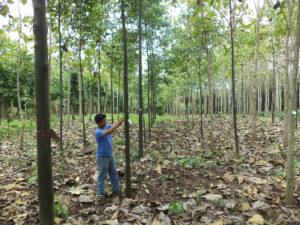 Acopagro’s General Manager Gonzalo Ríos expanded on the meaning of the co-op. “We have planted over two million trees. The idea is that now that we have some success in cocoa, there is still a lot to do but members know about growing cocoa. So what does the co-op do to improve their lives? We have two income diversity programs – a sustainable timber program and a hot pepper farming program.”
Acopagro’s General Manager Gonzalo Ríos expanded on the meaning of the co-op. “We have planted over two million trees. The idea is that now that we have some success in cocoa, there is still a lot to do but members know about growing cocoa. So what does the co-op do to improve their lives? We have two income diversity programs – a sustainable timber program and a hot pepper farming program.”
Those inspirational stories show us that cooperatives are, nowadays, working together to build sustainable communities and not just a food economy.
Be part of the change, make your voice heard, make your choices count, learn about co-op, join a co-op!
Resources:
– Co-operatives and Mutuals Canada: different types of co-operatives
– Co-operatives and Mutuals Canada: locate co-ops near you
– Canadian worker co-op federation: how to convert an existing business into a worker co-op
